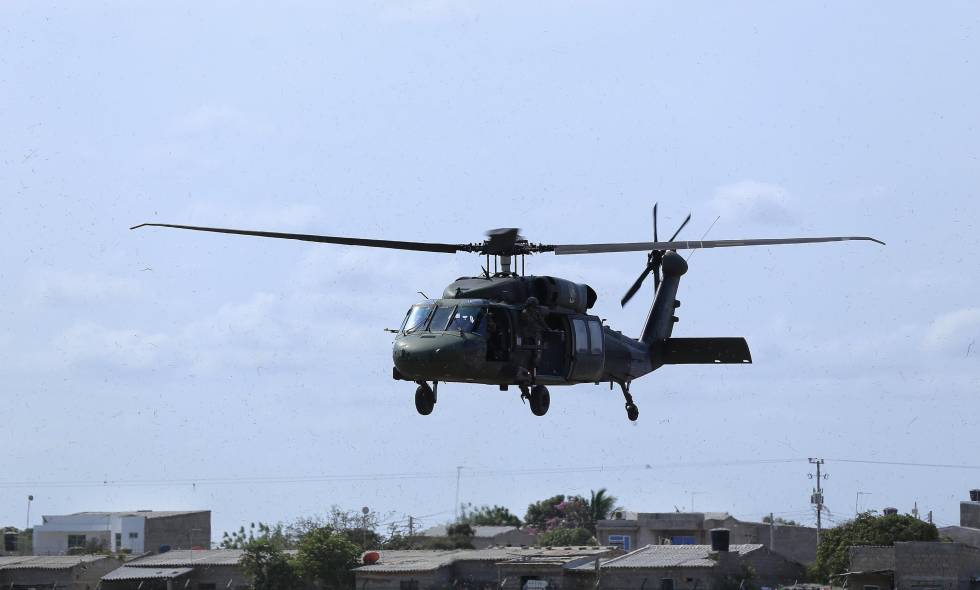
The helicopter went down in thick jungle in the southeast of the country
The Colombian army has reported that eleven soldiers were killed and six wounded after a military helicopter went down Tuesday in the country’s southeast during an operation against guerrillas.
The Black Hawk helicopter went down with 17 people aboard close to the Inirida River, in the country’s south-eastern Guaviare province. The region is covered by dense jungle, and is a hotspot for the cultivation of coca leaves used to make cocaine.
The military did not say if the helicopter crashed or was shot down. According to the army’s statement, the helicopter was supporting a military sweep against FARC dissidents — leftist guerrillas who refused to sign the peace deal their comrades reached with the government in 2016, or who participated in the peace accord but subsequently returned to the path of armed struggle. LINK
The commander of the Military Forces, General Luis Fernando Navarro, has said that the causes of the accident of the UH-60 Black Hawk helicopter, registration EJC 2176, are still under investigation.
Navarro provided further details in an interview, saying that the helicopter was carrying out an operation last Tuesday in the Guaviare province against the FARC dissidents in the area, under the command of alias Iván Mordisco.
“After intelligence work, we located the guerrilla structure in this part of the country,” he explained, adding that although the strongest hypothesis is that of technical or human failure, it is not ruled out that the helicopter may have been shot down, due to the type of operation it was undertaking.
“It would be premature to speak of any hypothesis, but at this time nothing has been ruled out.”
The Commander of the Military Forces further stated that when it was realized that the helicopter had not returned to the base in Mitu the search was activated immediately, in accordance with military protocol.
“There are protocols dealing with the conduct of a military operation and in accordance with these the helicopters do not communicate by radio to avoid detection. Then once the base is reached, the helicopter crews report on their mission, but in this case the aircraft never arrived and the search began and it was located promptly.”
The Central Military Hospital announced that the six injured from the accident are stable and in recovery. LINK
Approximately 12,000 members of the FARC-EP participated in the process of demobilization, disarmament and reincorporation in the transitional zones established pursuant to the Peace Accord signed in late 2016.
Crisis Group and Fundación Ideas para la Paz have estimated that between 2,000-2,500 members who were eligible to participate chose not to. As of June 2019 it was reported that approximately 8,200 were still actively participating in the process of capacitation and reincorporation in the stipulated transition zones.
It remains unclear how many of those who have left the formal process of reincorporation (or who declined to participate in the first place) with the intention of returning to the path of armed insurgency, as opposed to those who left the transition zones due to the lack of security, basic services, infrastructure and social and economic opportunities but have not returned to arms.
Among the FARC commanders that accompanied Iván Márquez, who led the FARC-EP’s negotiations with the Colombian government, were Aldinever Morantes, Hernán Darío Velásquez (El Paisa), Iván Merchán, Henry Castellanos (Romaña), Enrique Marulanda and Jesus Santrich. All were FARC guerrilla commanders who participated in the process of disarmament and demobilization in August 2017, and all of them had a significant number of people under their command during the war.
The latest estimates of Colombia’s military intelligence are that there are some 2,300 dissident guerrilla fighters, who still count on an extensive support network in many areas, particularly in their former strongholds.
MORE ON THE TOPIC:



